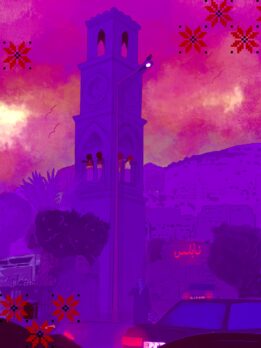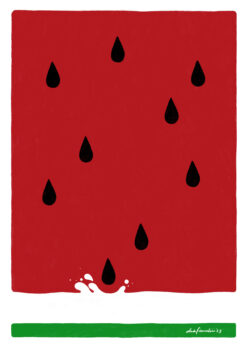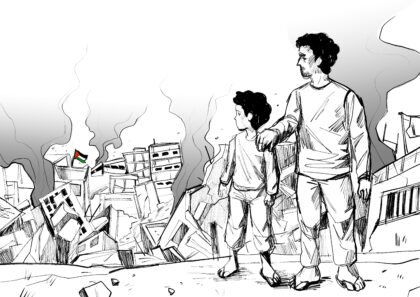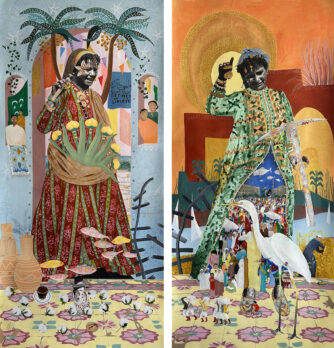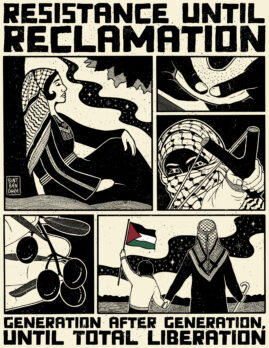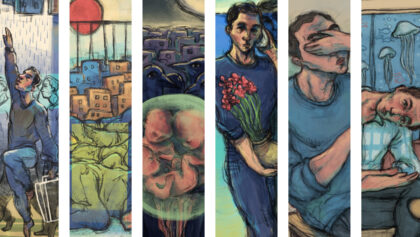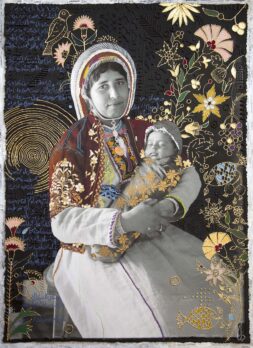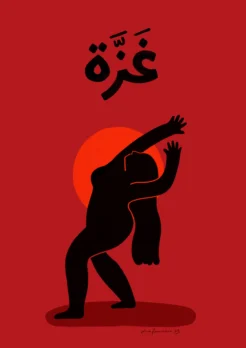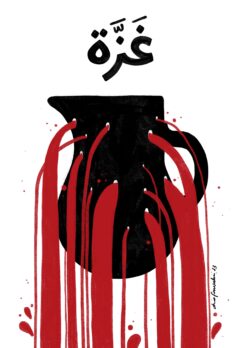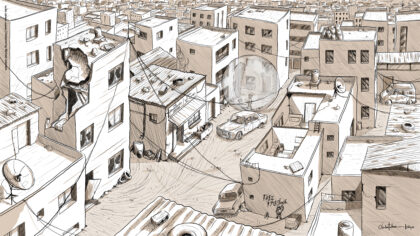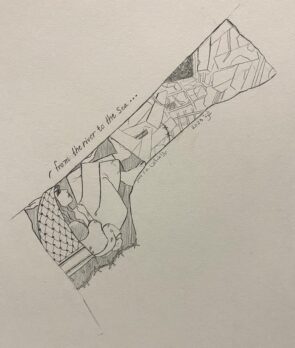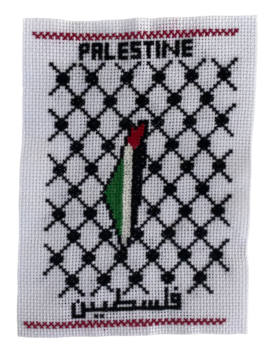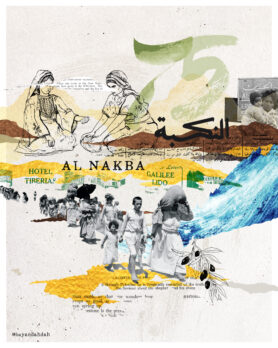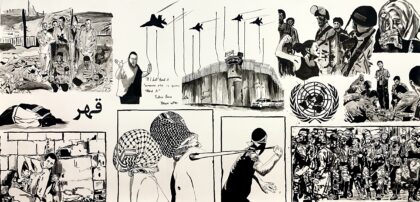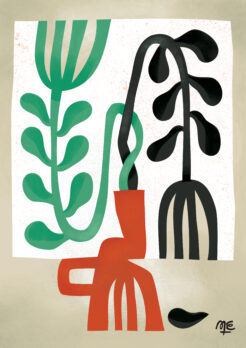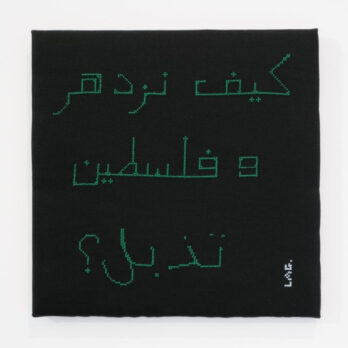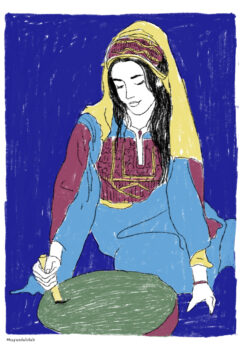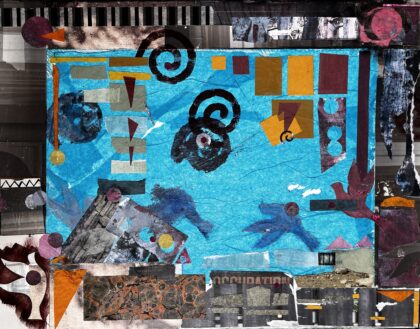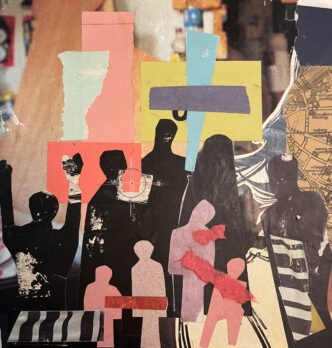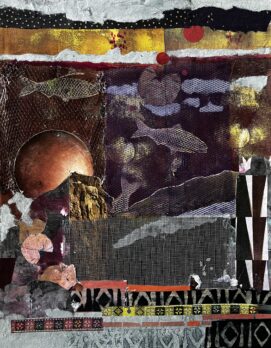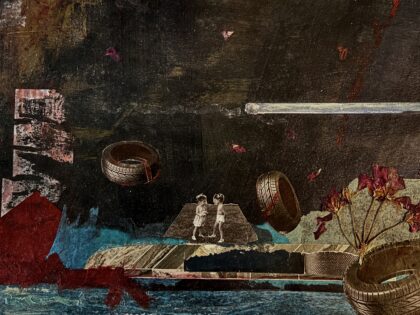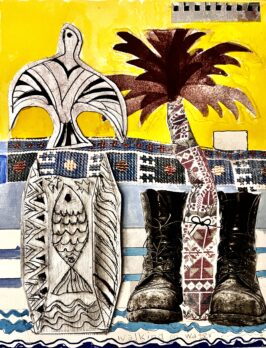My grandma had a farm in Gaza where
her children played outside. Only
her two oldest sons remember
living there.
My grandma had a farm in Gaza where
she took care of animals.
She milked goats
and rode donkeys.
She baked bread in a fire pit and
brewed maramiya
over crackling flames.
My grandma had a farm in Gaza where
she thought
she'd live peacefully
with her children and her husband.
My grandma had a farm in Gaza that
she left behind during the Six-Day War.
Her oldest son, just
eight years old, read the paper she signed
before they crossed the checkpoint. It said
if they wanted to leave safely that day,
they were never allowed to return.
My grandma had a farm in Gaza but
in Jordan she bought half-rotten fruit
from the market.
My grandma had a farm in Gaza and
when she lost it,
her sons,
just little boys, sold newspapers and ice cream
to make ends meet.
My grandma had a farm in Gaza and
when her oldest son
aged to sixty and went to America,
he bought a farm in Oregon to recreate
the only happy years of his life.
My grandma had a farm in Gaza but
in the haze of dementia,
our house in Northwest Washington
looked just like it.
My grandma had a farm in Gaza and
now she lies in a grave
overlooking the farmlands of Snohomish where
people raise cows and horses. Where people
brew instant coffee in cheap kettles and
buy bread from superstores.
My grandma had a farm in Gaza where
children don't play outside anymore.
They play in hospitals and shelters,
and the dark circles around
their precious little eyes say that
the memories are haunting
and they will remember.
This piece is dedicated to Fatmeh Abujame, Kat's beloved teta, who couldn't read or write, but moved heaven and earth to make sure her children and grandchildren could.
 Artwork by Mette Ehlers
Artwork by Mette Ehlers
